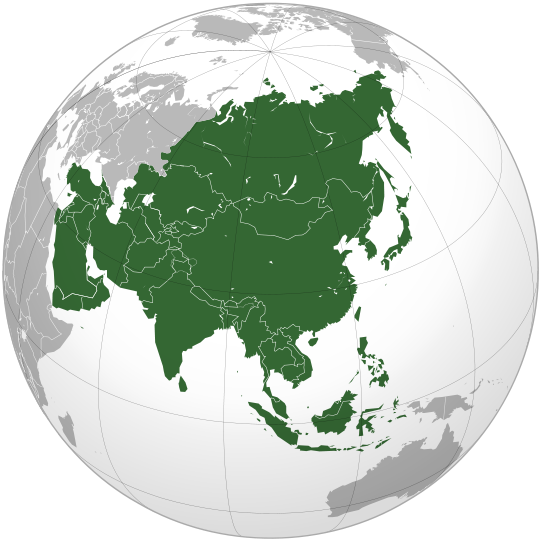Reinscribing Imperialism in our Academic Work or Knowing Your Frame
Posted in The Gnovis Blog
Before coming to Communication, Culture and Technology for my master’s, I was pursuing an Asian Studies bachelor’s in the School of Foreign Service, and, predictably, our program focused a lot on Orientalism and other forms of imperialism and colonialism both historically and today. Having shifted now to thinking primarily about media and cultural production, it has been very important for me to keep that part of my academic history alive by paying attention to the ways that we in CCT might fall into the trap of reinscribing imperialism in our academic work. The following suggestions, then, are a few of the ways I’ve thought about for working through this in any given paper or study:
 1. Think through the geographic and cultural frames of your analysis and be clear about them in writing. If you’re thinking only about the United States, make sure to say that. If you’re going to be using examples from the United States and Great Britain, then make that clear. Elsewhere in the world, it’s very rarely appropriate to make broad sweeping claims about entire continents such as Africa or Asia. If you can’t account for everything from Azerbaijan to Brunei or Tunisia to Madagascar, and all the diversity in between, then you need to rethink your frame to avoid speaking for experiences that your work does not account for.
1. Think through the geographic and cultural frames of your analysis and be clear about them in writing. If you’re thinking only about the United States, make sure to say that. If you’re going to be using examples from the United States and Great Britain, then make that clear. Elsewhere in the world, it’s very rarely appropriate to make broad sweeping claims about entire continents such as Africa or Asia. If you can’t account for everything from Azerbaijan to Brunei or Tunisia to Madagascar, and all the diversity in between, then you need to rethink your frame to avoid speaking for experiences that your work does not account for.
2. If your frame is “The West,” then make sure to think thoroughly about what that actually means in the case of your paper and whether there’s a more specific or better way of describing it. “The West” is a pretty spongy category. Do you really mean to include Australia and New Zealand? Does South Africa count? What about Slovenia, Slovakia and other border states of Eastern Europe? Do you actually know anything about the way your topic plays out in Spain? Without selling yourself short on the potential implications of your thesis, the more specific you can be about where your evidence is drawn from and for whom you feel comfortable speaking, the more meaningful your findings will be.
3.  3. Canada is a specific special case worthy of consideration each time we think about writing for the United States. Because we share a border and (one) national language, the media flow between us is significant, and failing to mark Canadian inclusion in a paper that discusses films or television programming originating from our neighbor to the north is an erasure worth avoiding. On the flip side, Canadians are not Americans and seeking to include them in any discussion without adequate examination of their specificity is, in itself, a kind of imperialism.
3. Canada is a specific special case worthy of consideration each time we think about writing for the United States. Because we share a border and (one) national language, the media flow between us is significant, and failing to mark Canadian inclusion in a paper that discusses films or television programming originating from our neighbor to the north is an erasure worth avoiding. On the flip side, Canadians are not Americans and seeking to include them in any discussion without adequate examination of their specificity is, in itself, a kind of imperialism.
4.  Within the United States, it’s important to remember the diversity of our media landscape. Today, many diaspora communities continue to consume media from other countries. Nigerian movies are sold at parties, Korean drama are downloaded and burned, South Asian films are circulated by Desi grocery stores, and Brazilian novellas are seen via satellite. Even print media from L’Express toノン-ノ, make their way to American readers. These all have their place in the US media landscape even if they do not originate here and allowing them to complicate and challenge our ideas when possible and necessary can only help us to build more robust and inclusive arguments.
Within the United States, it’s important to remember the diversity of our media landscape. Today, many diaspora communities continue to consume media from other countries. Nigerian movies are sold at parties, Korean drama are downloaded and burned, South Asian films are circulated by Desi grocery stores, and Brazilian novellas are seen via satellite. Even print media from L’Express toノン-ノ, make their way to American readers. These all have their place in the US media landscape even if they do not originate here and allowing them to complicate and challenge our ideas when possible and necessary can only help us to build more robust and inclusive arguments.
5. Whatever your frame ends up being, your findings will be bolstered if you include a diverse set of examples in the proof. I can’t tell you how many papers I’ve read about “Indian cinema” that only actually discuss Hindi-language films. If you mean Bollywood, then say Bollywood, and if you don’t then you better be drawing on examples from a wide variety of regions and languages.
